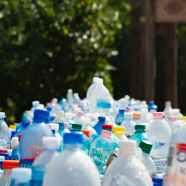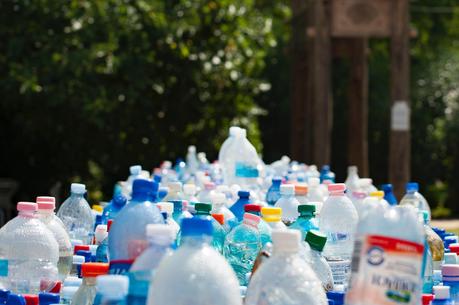
We're all concerned about the amount of plastics making their way into our oceans and the effect of pollution on our skies and climate but it's our home grown waste that has a significant impact on the world's landfill sites and our harmful emissions that cause so much damage.
But what are we to do? We could wring our hands and let worry render us paralysed or we can take action today to make some small but significant changes inside our own homes and to our own lifestyles.
Here we suggest five changes that you can make towards a more sustainable future:

This is a huge issue. The amount of perfectly edible food that gets thrown away every year runs into the billions of tons. To help avoid this unnecessary waste, careful planning is the answer. Cooking just enough and using up or freezing leftovers will help and not buying large amounts of processed food will avoid excessive packaging.
Buying fruit that never gets eaten is a big problem so buying only a little seasonal fruit and vegetables one meal at a time is a wise approach.
When it come to recycling. For most of us in the developed world there is some kind of recycling system in place where we can leave glass, paper, cardboard, cans and food containers on our doorsteps to be collected.
But there is other waste material that can be recycled and going the extra mile to take building and green materials to recycling centres goes a long way in closing the loop and turning these materials back into products such as building sand, compost and building rubble.
Even if you worked from home once a week, experts estimate millions of tons in C02 would be saved every year. Cutting out the daily commute, reducing heating and lighting emissions all work for the greater good.
Just once a week, swap your meat dishes and go vegetarian or even vegan. This choice has a significant impact on reducing your own unique carbon footprint and carbon gasses.
It will also have the added value of reducing your food bill.
In a bid to help reduce plastic waste, many supermarkets are not only charging for reusable plastic bags for life but also encouraging customers to bring their own plastic containers to buy up products such as meat.
Supporting these outlets sends a strong message to retailers that reducing plastic isn't just a token gesture; it's vital if we want to reduce and eventually restore the oceans from the harm we've caused them over decades of plastic use.
However, you live your life these small but significant changes can make real, impactful changes in the world. We must never underestimate how individual contributions, when done collectively, are the force for real change.
Perhaps the two most important things we can do are reduce waste, both plastic and food. Of course this does involve a little bit more planning and a little more organisation but the future of our planet is worth that time.

